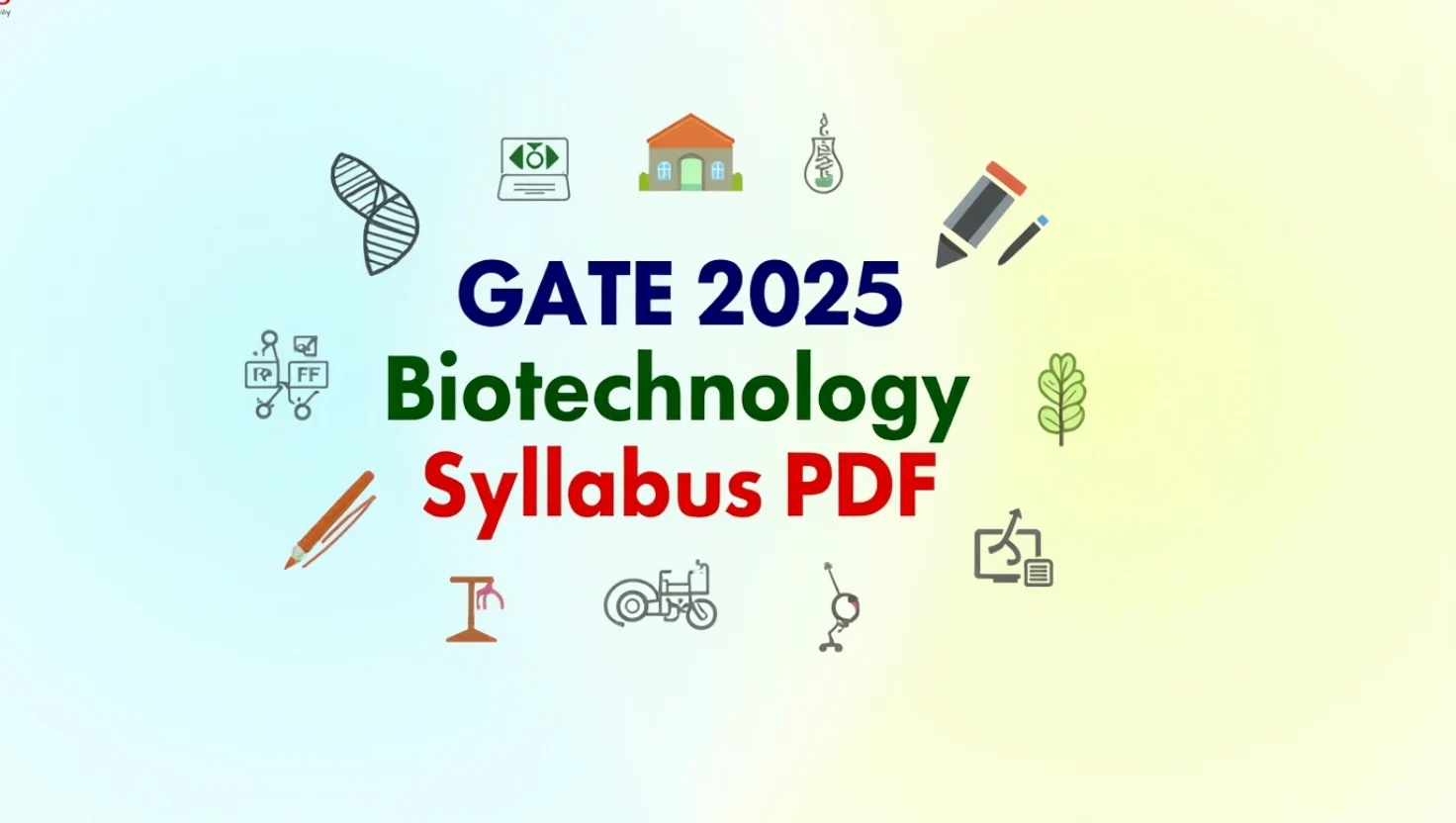The GATE 2025 Biotechnology syllabus is designed to test your understanding of core concepts across biology, engineering, and mathematical principles. The paper, coded as BT, includes subjects like molecular biology, bioprocess engineering, plant and animal biotechnology, recombinant DNA technology, and engineering mathematics. If you’re preparing for postgraduate admissions in IITs, research positions, or even PSU jobs, it’s important to be fully aware of what the syllabus includes and how the paper is structured.
I’m writing this article because many students preparing for the GATE BT paper either come from pure biology backgrounds or from engineering disciplines, and this paper requires a balance of both. The syllabus includes a mix of concepts from life sciences and process engineering, and not knowing what to focus on can waste both time and energy. I’ve seen students prepare for topics that aren’t even part of the syllabus just because they followed outdated sources or incomplete notes. That’s why understanding the latest official syllabus and paper pattern is key to building an effective and focused study plan. This article will help you understand the structure of the exam and guide you to the correct syllabus PDF.
GATE 2025 Biotechnology Exam Pattern
Let’s begin with the exam pattern so you know how the marks are distributed:
- Total Marks: 100
- Duration: 3 hours
- Sections:
- General Aptitude – 15 marks
- Engineering Mathematics – 13 marks
- Core Biotechnology Subjects – 72 marks
- Question Types:
- Multiple Choice Questions (MCQ)
- Multiple Select Questions (MSQ)
- Numerical Answer Type (NAT)
There is no sectional time limit. All questions will be mixed and appear in a single paper. Candidates need to manage their time across aptitude, maths, and technical questions.
Why You Should Know the Syllabus Clearly
Biotechnology is a vast and interdisciplinary subject. Without a clear syllabus in hand, it’s easy to lose direction. Many students waste time reading research-heavy material that isn’t even relevant to the exam. The GATE BT syllabus is very specific about what topics are expected. For example, if you’re good at microbiology but weak in maths or process engineering, you need to plan your time wisely to cover all sections equally.
GATE is not just a test of memory, it’s a test of clarity. Knowing the syllabus helps you avoid the trap of studying too broadly or too narrowly. It also helps you pick the right books and online courses. Most importantly, if you break the syllabus into weekly goals, it becomes easier to revise and practise mock tests. That’s why I always recommend starting your GATE preparation with the official syllabus in front of you.
Download PDF
To help you stay on track, you can download the GATE 2025 Biotechnology syllabus PDF directly from the official website. Here’s the link:
Click here to download the syllabus PDF
Keep a copy saved or print it out and stick it where you study. It’s the simplest way to ensure you’re not missing out on any important topic.
Final Words
The GATE Biotechnology paper is competitive, but it’s also very doable if you know exactly what to prepare. Don’t make the mistake of blindly following someone else’s notes or preparing like a biology-only exam. Go through the syllabus, understand the weightage, and practise mock tests that follow the official pattern. A targeted approach works much better than an overloaded one. If you’re stuck on choosing the right reference books or making a study plan, just drop your question here—I’ll be glad to share some personal suggestions that have helped other students crack the exam.



















